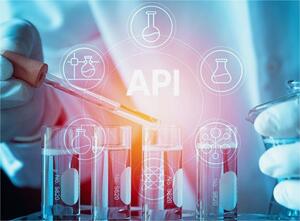The Building Blocks of Medicine: Pharmaceutical Intermediates and APIs
الجسم
Pharmaceutical Intermediates: The Scaffolding of Success
Imagine a complex building. Pharmaceutical intermediates are like the bricks and beams that form its foundation and framework. These are the partially synthesized chemical compounds that serve as the starting materials or building blocks for APIs. They undergo a series of chemical reactions and transformations before reaching their final form as the active ingredient in a medication.
Here are some key things to know about pharmaceutical intermediates:
They are often complex molecules, requiring skilled chemists and sophisticated equipment for their synthesis.
They can be derived from various sources, including natural products, petrochemicals, and even genetically engineered organisms.
The quality and purity of intermediates are critical for the final quality and efficacy of the API.
A network of specialized manufacturers globally produces and supplies pharmaceutical intermediates to pharmaceutical companies.
Active Pharmaceutical Ingredients: The Engine that Drives the Cure
Now, let's step inside the building. The API is the active component of a drug that interacts with the body to produce the desired therapeutic effect. It's the engine that drives the cure, the reason a medication alleviates symptoms or treats a disease.
Here's what makes APIs special:
They are carefully designed and meticulously tested to ensure their safety and effectiveness.
They are often complex molecules with specific chemical structures that determine their therapeutic properties.
The development and manufacturing of APIs are highly regulated to ensure quality and consistency.
APIs can be used in various dosage forms, including tablets, capsules, injectables, and topical creams.
The Intertwined Journey
Pharmaceutical intermediates and APIs are like partners in a tango, their steps carefully choreographed to create a successful outcome. Intermediates undergo a series of transformations, each step carefully monitored and controlled, until they reach their final form as the API. The API is then formulated into the final drug product, ready to be dispensed and administered to patients.
The Importance of Both
Understanding the roles of pharmaceutical intermediates and APIs is crucial for appreciating the complex journey of drug development. Each step, from the initial design of the molecule to the final production of the medication, requires meticulous attention to detail and rigorous quality control. Both the building blocks and the engine are essential for delivering safe and effective treatments to patients in need.
The Future of Pharma
The field of pharmaceutical research and development is constantly evolving. Advancements in biotechnology, such as gene editing and personalized medicine, are opening up new avenues for drug discovery and development. This, in turn, will likely impact the landscape of pharmaceutical intermediates and APIs, with the need for even more specialized and targeted molecules.
In conclusion, pharmaceutical intermediates and APIs are the unsung heroes of the pharmaceutical world. Their intricate dance, fueled by scientific know-how and rigorous quality control, ultimately leads to the development of life-saving medications that improve the lives of millions. As the field of medicine continues to evolve, the importance of these building blocks and engines will only grow, ensuring a brighter future for healthcare.













تعليقات